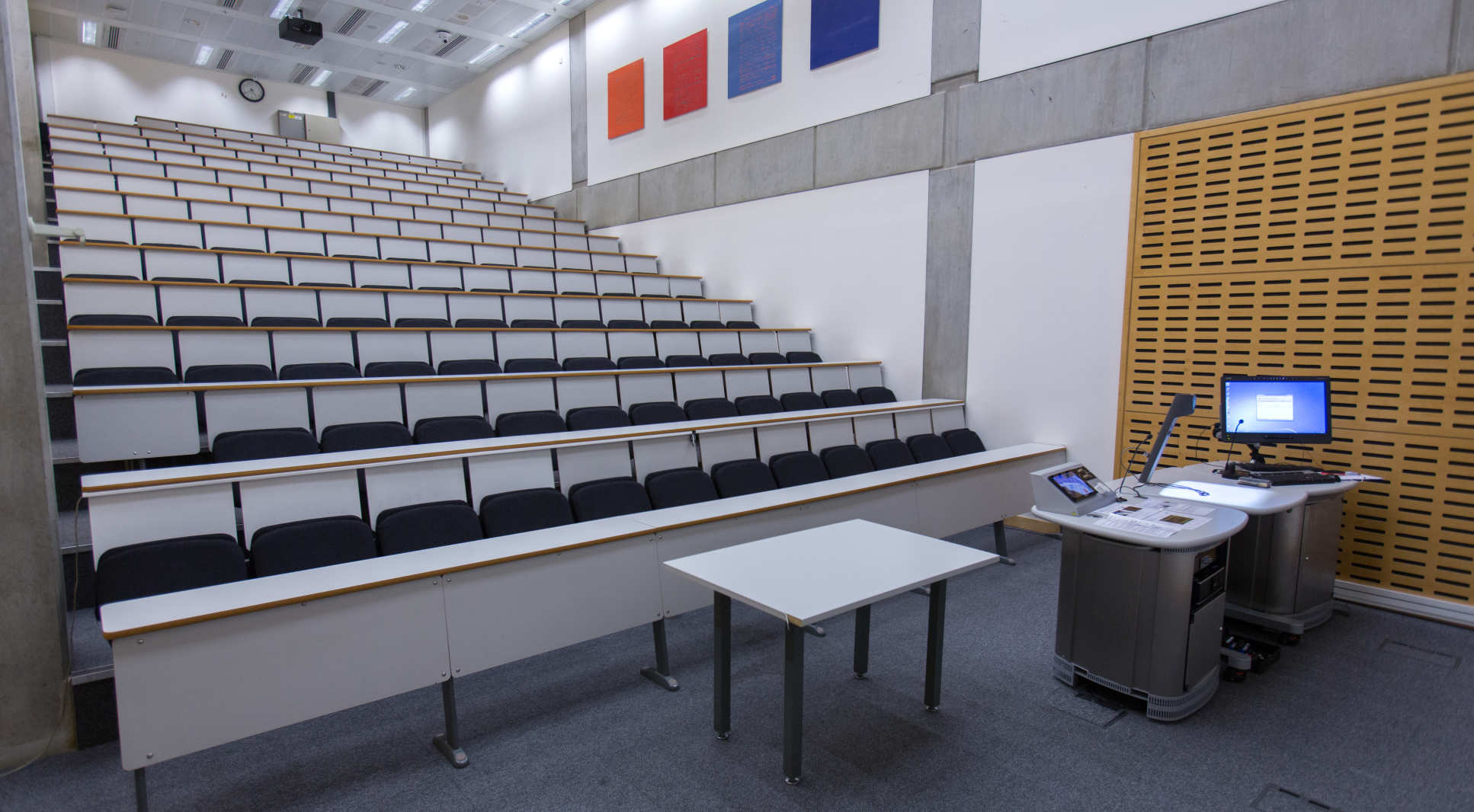
Top tip
"My advice for your first few lectures would be to get into the habit of asking your lecturers about anything you don't understand; they hold a wealth of knowledge and by asking questions you establish a rapport with academics which can be useful later on."
– Stefano Fiocca, Physics Academic Departmental Representative 2021-22
Lectures will form the foundation of your learning at university. Lectures allow experts to share their knowledge, enthusiasm and experience about their particular field of research. They will introduce you to the main topics in your subject area and give an overview of the literature, evidence and arguments.
Tabbed information block
To get the most out of lectures, it's really important to prepare in advance. Find out what the lecture will be about, and do a bit of background reading. That way, when the lecturer is talking, you will have a head start. You will usually find the lectures on Blackboard and you can often download the slides in advance.
When you read over them, think about the following things:
- Are there any new terms that you don't understand? Look them up.
- How does this topic fit with other topics you've studied?
- What questions do you have about the information?
- What do you want to get from this lecture?
By answering these questions, you will be more likely to benefit from the lecture and avoid confusion later.
Before the lecture you should also think about what equipment you need. Will you use a notepad and pen, a laptop or an iPad? Which works best for you? It might take some experimentation before you find a system that really works - it's all about personal preference.
People learn in many different ways and it's really useful to think about how you prefer to learn as this will affect the way you approach lectures.
Some people prefer watching and listening, others prefer to write everything down, and some prefer to discuss and share. Whatever your preference, make sure that you use the lecture as an opportunity to capture the key information that you will need to develop your thinking.
Here are a few questions to ask yourself:
- What are the most important points?
- How do they link together?
- Do you actively listen to the lecture and think about what the lecturer is saying?
- How much do you remember of the lecture once it's over?
- Does note-taking distract you from thinking about the subject?
- Do you understand the main points?
By knowing the answers to these questions, you will ensure that you are getting the most out of your lectures. Find out more about your learning preferences.
Many lecturers will invite questions during the lecture, so if there is something you don't understand, then you can ask a question. Alternatively, wait until the end of the lecture and ask them if there is a point you want to clarify or explore in more detail. Lecturers usually allow time for this at the end of a lecture and welcome the interaction. You might also want to discuss the lecture with your classmates to share your insights.
Lecturers who distribute slides in advance may leave gaps in the slides for you to complete during the lecture, so that you can solve the problem and write down the solution for yourself. When lecturers use slides, you should be able to get hold of a copy of the slides, or a handout. Having access to the slides should mean you need to take fewer notes, affording you the time to think and question as you go along, listening out for the main line of argument and other important points.
Some lecturers don't use slides or provide handouts, but will write everything using the board or a projector or use lots of demonstrations. Don't just write down everything - listen to what is being said and think about what the key points are. If you do need to make a lot of notes, don't be afraid to ask the lecturer to slow down, you need to make sure you understand what is being presented.
Go somewhere quiet after a lecture and make sure your notes make sense and are legible - sometimes it may even help to re-write them and add your own thoughts and ideas. If you have any gaps in your notes, or they don't make sense, speak to the tutor and ask them to clarify any points. You might consider doing this via Blackboard as some of your classmates might be able to help too.
Then set aside time to:
- Read and make notes on references and back-up material;
- Answer example questions;
- Discuss the topic with your tutor or your tutor group to improve your understanding.
If you missed anything, or there are sections you didn't understand, it can help to rewatch specific sections of the lecture. Check out the guide to Using lecture recordings.
Next Page
Effective note taking